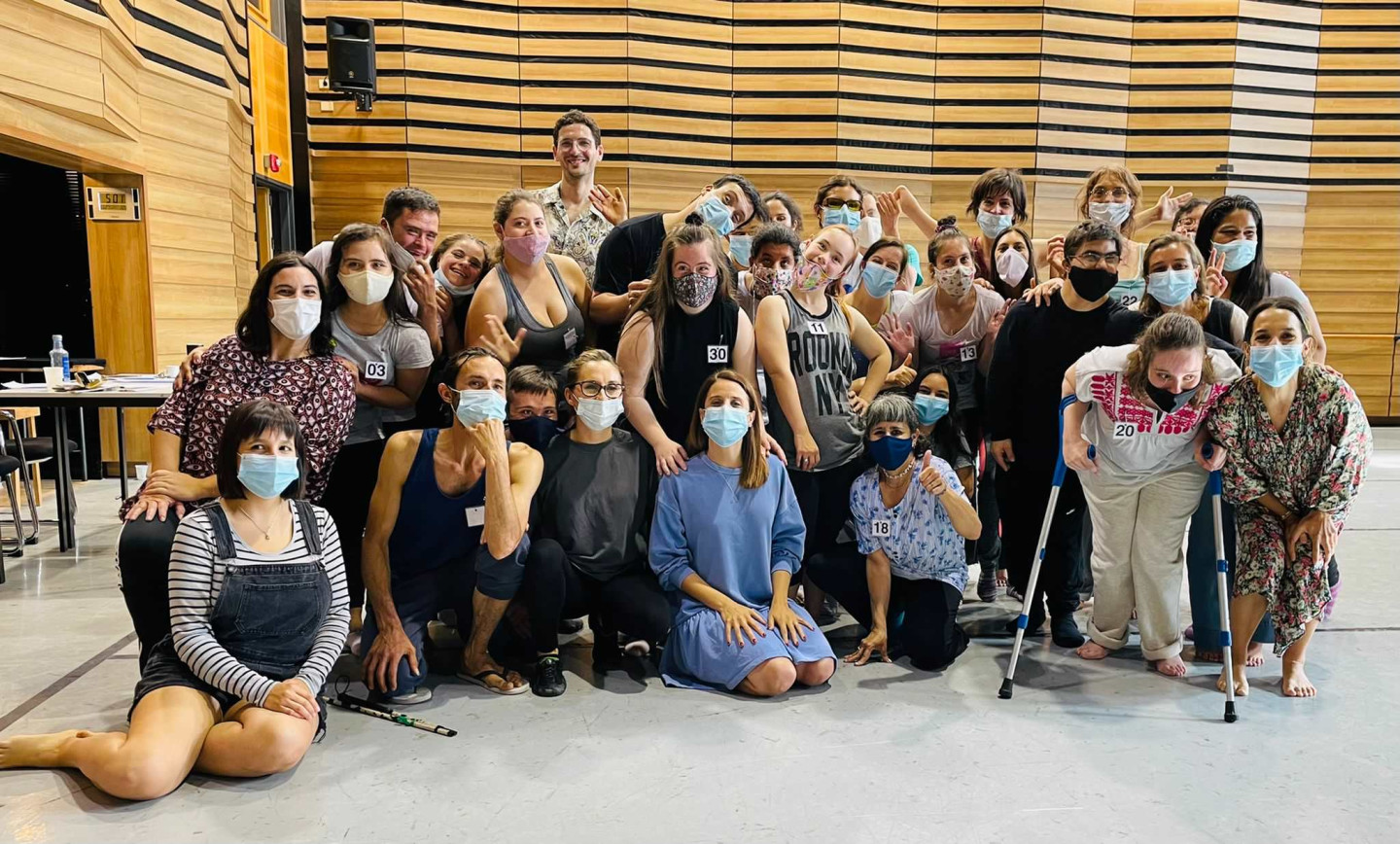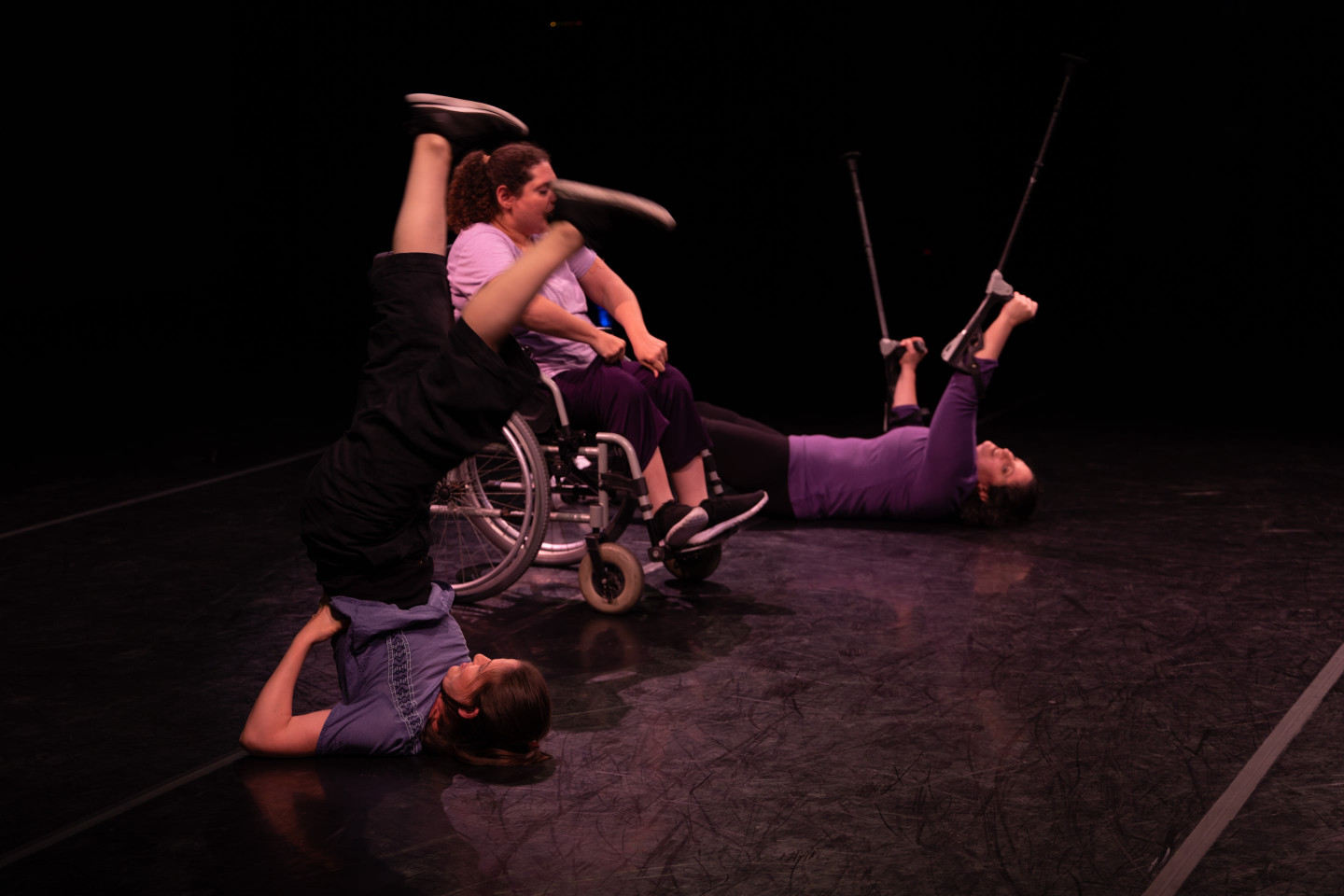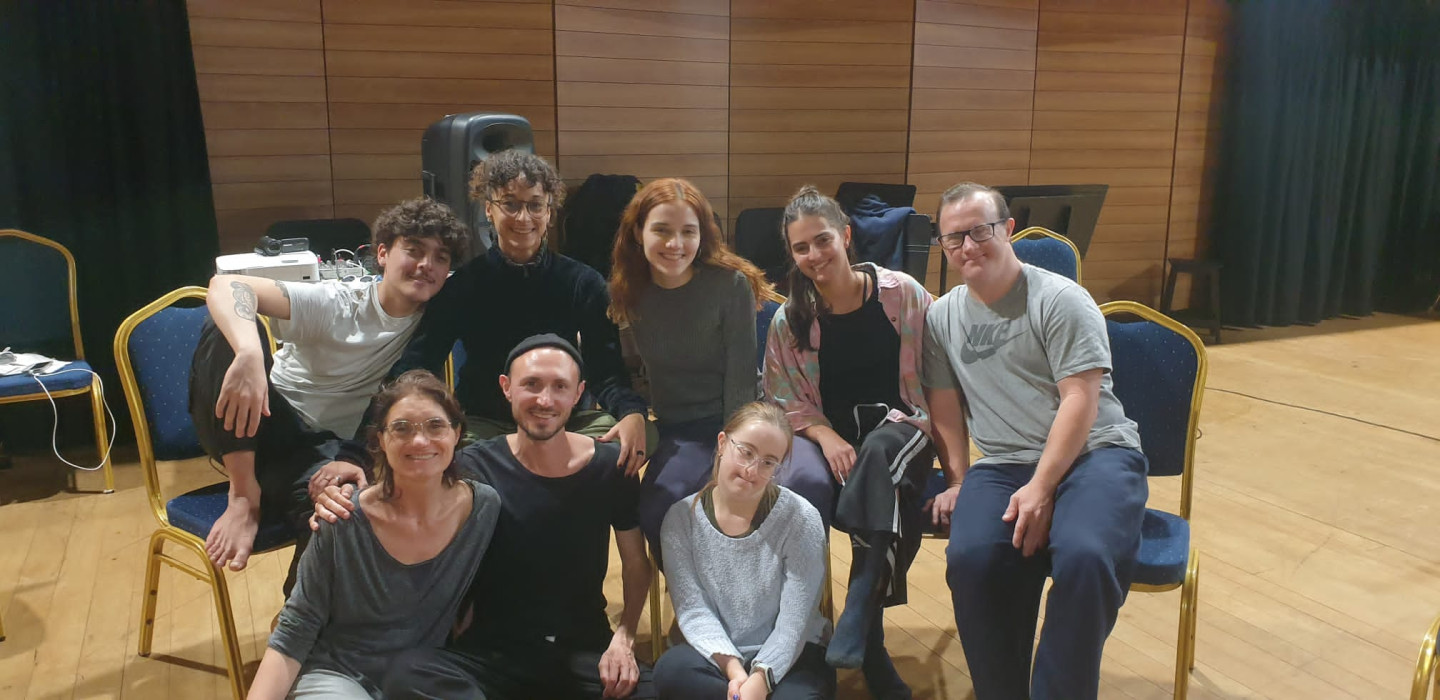The SIN LÍMITES (UNLIMITED) Festival 2022 is the first festival ever in Uruguay which is dedicated to arts and inclusion. SIN LÍMITES invites inclusive artistic companies from Europe and South America; its program includes performances, art residencies, workshops and research on inclusivity.
Though inclusion as a general issue is well established in Uruguay’s public agenda and all institutions would support it, accessibility is far away from being implemented and visible, especially in the field of arts and culture. Individual groups and organizations are trying to change this, but don’t have the power to get things done, especially in times of pandemic. Covid-19 had not only made it difficult to advocate for more inclusion, it had also totally paralysed cultural life and pushed many artists into precarious situations.
The festival aims to address key challenges that people with disabilities experience in accessing cultural life. From the beginning on, it involves communities to participate in developing all festival policies and structures, with the long term perspective of improving autonomy for people with disabilities. All festival party events will be barrier-free.
Strengthening accessibility to cultural life
The festival creates a space to bring artists together so that they can combine forces and build up a strong network to support each other. This will establish new standards and opportunities for artists and cultural managers, as well as it will make a meaningful contribution to the civil society. With its process, SIN LÍMITES will contribute to the UN SDGs of creating decent work, increasing innovation and infrastructure and reduce inequality.
Establishing structures for the festival and strengthening cooperation between all partners was the main focus of the activities in Step 2 of the application process. The national theatre SODRE established its in-house commission for accessibility and inclusion, steering the entire process and strengthening ties with the local groups of people with disabilities.
The festival is a beautiful opportunity to have these shows in our theatres, but the goal is that it ceases to exist, that we don't need a festival to have a diverse and inclusive programmer. It is a first step.
Martín Inthamoussu, President of SODRE
Progress was made in training personnel in awareness about accessibility & inclusion and barrier-free communication. A national press conference on 1 December 2021 announced the festival. Among other things, as a direct result of the festival's announcement, the Uruguyan government has already established accessibility and inclusion in culture as an official item in their agenda.
Sin Límites Festival
From 18-24 April 2022 SIN LÍMITES, Uruguay's first International Festival of Inclusive Performing Arts took place in Montevideo at Uruguay's National Theatre SODRE, with nine shows of dance, music and theatre performances, in which 131 national and international artists participated. Apart from the artistic programme, SIN LÍMITES offered four different workshops and five panel discussions to reflect accessibility in performing arts, to generate a network within the sector. Furthermore, a creative residencies was organized whose results premiered during the festival. All festival actitvities and the communication strategy around the festival were designed inclusive.
Watch the video summary of the festival or read more about EUNIC's visit to the festival's activities here!



